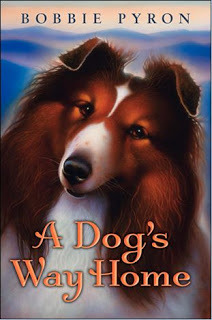Sydney Salter's Blog, page 18
April 21, 2011
A Few Books on Writing Craft
I'm always surprised when I encounter one of those writers who thinks the struggle to master craft stops with publication. Learning is my favorite thing about writing and I'm always stretching myself to improve my craft.
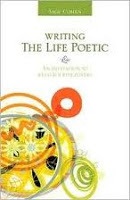
April is Poetry Month so I'm working through Writing The Life Poetic by Sage Cohen and filling my practice notebook with a lot of mediocre verse. Poetry has always intimidated me (I never understood all the significance my high school teachers found in poems), but it's something I want to learn. So I'm practicing every day. The short chapters and exercises in this book are, for lack of a more poetic word, fun.
Here are some other books that have helped me along the way:
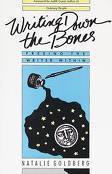
Writing Down The Bones by Natalie Goldberg. This book gave me permission to practice. Until I found this book I thought that becoming an author required some elusive mixture of alcoholism and magical talent that I didn't seem to possess. Twenty-three spiral notebooks later, I will always be grateful to Natalie Goldberg for showing me the first steps to becoming a writer.
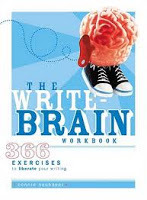
The Write-Brain Workbook by Bonnie Neubauer. The gorgeous graphic design in this notebook has me looking forward to the next exercise. These short exercises are a great way to jump-start creativity, silence that annoying internal editor, and feel a sense of accomplishment no matter what else gets written that day. I meet a lot of writers who "just don't have the time." Everyone has the daily ten minutes needed for these quick prompts. No excuses!!!
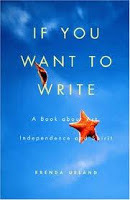
If You Want To Write by Brenda Ueland. Published in 1938 this book provides timeless nuggets of advice as well as inspiration. Ueland writes, "Everybody is talented, original and has something to say..." After you've read Anne Lamott's Bird By Bird and Stephen King's On Writing try this one.
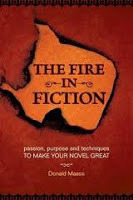
The Fire In Fiction by Donald Maass. I read this one so vigorously the pages came loose! I've got high-lighted sections, sticky note markers, notes jotted... I especially love the Practical Tools sections at the end of each chapter. I find myself returning to this craft-intensive book again and again.

Self-Editing For Fiction Writers by Renni Browne and Dave King. I bought this book when I first started revising Jungle Crossing, but I've returned to it every manuscript since. It's also the gift I give to all my friends who complete their first novel.
One last note: Take the time to do the writing exercises listed in craft books. It's often too tempting, too easy, to think, Yup. Did that. Mmm-hmm. Did that too. I'm obviously brilliant--no need to revise. YAY!
You're not really stretching your abilities unless you dig in and do the difficult work.

April is Poetry Month so I'm working through Writing The Life Poetic by Sage Cohen and filling my practice notebook with a lot of mediocre verse. Poetry has always intimidated me (I never understood all the significance my high school teachers found in poems), but it's something I want to learn. So I'm practicing every day. The short chapters and exercises in this book are, for lack of a more poetic word, fun.
Here are some other books that have helped me along the way:

Writing Down The Bones by Natalie Goldberg. This book gave me permission to practice. Until I found this book I thought that becoming an author required some elusive mixture of alcoholism and magical talent that I didn't seem to possess. Twenty-three spiral notebooks later, I will always be grateful to Natalie Goldberg for showing me the first steps to becoming a writer.

The Write-Brain Workbook by Bonnie Neubauer. The gorgeous graphic design in this notebook has me looking forward to the next exercise. These short exercises are a great way to jump-start creativity, silence that annoying internal editor, and feel a sense of accomplishment no matter what else gets written that day. I meet a lot of writers who "just don't have the time." Everyone has the daily ten minutes needed for these quick prompts. No excuses!!!

If You Want To Write by Brenda Ueland. Published in 1938 this book provides timeless nuggets of advice as well as inspiration. Ueland writes, "Everybody is talented, original and has something to say..." After you've read Anne Lamott's Bird By Bird and Stephen King's On Writing try this one.

The Fire In Fiction by Donald Maass. I read this one so vigorously the pages came loose! I've got high-lighted sections, sticky note markers, notes jotted... I especially love the Practical Tools sections at the end of each chapter. I find myself returning to this craft-intensive book again and again.

Self-Editing For Fiction Writers by Renni Browne and Dave King. I bought this book when I first started revising Jungle Crossing, but I've returned to it every manuscript since. It's also the gift I give to all my friends who complete their first novel.
One last note: Take the time to do the writing exercises listed in craft books. It's often too tempting, too easy, to think, Yup. Did that. Mmm-hmm. Did that too. I'm obviously brilliant--no need to revise. YAY!
You're not really stretching your abilities unless you dig in and do the difficult work.
Published on April 21, 2011 10:01
Contest Winner!
Congratulations!!!!
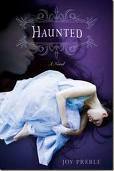
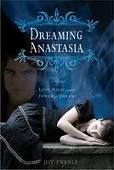
Jolene wins signed copies of Joy Preble's series Dreaming Anastasia and Haunted!


Jolene wins signed copies of Joy Preble's series Dreaming Anastasia and Haunted!
Published on April 21, 2011 09:19
April 19, 2011
Shake Up Your Story Settings
Most of the time I hear bands play in concert venues like sports arenas, outdoor amphitheaters, or grimy bars. Here's Arcade Fire playing last week at Utah Valley University:

I had a whole blog post planned about how the lead singer forgot the words, singing "something, something," until the crowd helped him along. Moral: people forgive your mistakes & even Grammy-winning rock bands blank out sometimes, so don't freak out when your own words don't come.
But alas I had two presentations to give at our regional SCBWI conference in Boise, Idaho on Saturday so I didn't get that post written. Saturday afternoon, I found myself listening to another band play at Boise State University:
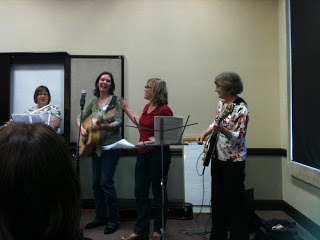
Most people don't equate children's writing conferences with electric guitars, right? And who knew that picture book author Judy Cox could really rock that bass! Come to find out, she's been in a band for thirty years & plays regular gigs.
I never would've known about Judy's inner Guitar Goddess had we not switched up the setting. Take the rock band out of the club and plunk it into a writing conference. Not only did the silly songs make us laugh, but the whole show revealed character. (I have crazy creative SCBWI volunteers in Boise!)
Now think about your own writing. What would happen if you took that big argument between your MC and her parents out of the kitchen--and put it in her dad's office? A bowling alley? Outside church?
Too often we rely on the same old settings in our stories: school cafeteria, home, home, home, Biology class, home, cafeteria... Shake things up. Make lists of all the unique places in your character's town or fantasy world. Are your scenes happening in some of these places? Why not?
Putting your characters in unique and varied settings will allow you to reveal new things about your characters. Try it!

I had a whole blog post planned about how the lead singer forgot the words, singing "something, something," until the crowd helped him along. Moral: people forgive your mistakes & even Grammy-winning rock bands blank out sometimes, so don't freak out when your own words don't come.
But alas I had two presentations to give at our regional SCBWI conference in Boise, Idaho on Saturday so I didn't get that post written. Saturday afternoon, I found myself listening to another band play at Boise State University:

Most people don't equate children's writing conferences with electric guitars, right? And who knew that picture book author Judy Cox could really rock that bass! Come to find out, she's been in a band for thirty years & plays regular gigs.
I never would've known about Judy's inner Guitar Goddess had we not switched up the setting. Take the rock band out of the club and plunk it into a writing conference. Not only did the silly songs make us laugh, but the whole show revealed character. (I have crazy creative SCBWI volunteers in Boise!)
Now think about your own writing. What would happen if you took that big argument between your MC and her parents out of the kitchen--and put it in her dad's office? A bowling alley? Outside church?
Too often we rely on the same old settings in our stories: school cafeteria, home, home, home, Biology class, home, cafeteria... Shake things up. Make lists of all the unique places in your character's town or fantasy world. Are your scenes happening in some of these places? Why not?
Putting your characters in unique and varied settings will allow you to reveal new things about your characters. Try it!
Published on April 19, 2011 13:51
April 12, 2011
On The Go With Joy Preble + Book Giveaway!

One of my favorite author friends, Joy Preble, visited Utah last week, so I took her on a short adventure to Antelope Island. Where else in the world can you see bison roaming on an island in the middle of a huge, salty prehistoric lake?
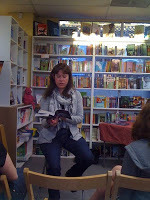 I also attended Joy's book signings to celebrate the release of Haunted, the sequel to Dreaming Anastasia. Joy was also kind enough to kick off my new On The Go questions.
I also attended Joy's book signings to celebrate the release of Haunted, the sequel to Dreaming Anastasia. Joy was also kind enough to kick off my new On The Go questions. Leave a comment and you can win your own signed copies!
1. You have been given your Dream Vacation. Where are you going & what are you doing?
I am actually planning for one of my dream vacations - probably year after next if we can save enough money. We will be going to Australia and New Zealand to see everything we can see - including Sydney, koala bears, and the gorgeous scenery where they shot Lord of the Rings. I can hardly wait!!
2. What if you could travel to a different time period?
I'd like to travel to turn of the 20th century NYC and have tea at the Plaza Hotel. Because seriously, who doesn't want to do that? I could do that every afternoon, actually. Wouldn't that be amazing?
3. Are you a planner or a seat-of-the pants traveler?
I'm a ridiculously OCD-type over-planner. Just ask my husband. He referred to one New York trip as "The Bataan Death March of Vacations." I read travel guides. I search on line. I map quest like a mad woman. I ponder. I make lists. My lists make lists. I have plans for vacations we might never get to. It's scary.
4. What's the worst thing that's ever happened to you on vacation?
One time - on a spur of the moment trip to San Antonio and Sea World, we got to the hotel and the clerk said, "Your room isn't ready." What she meant was that this hotel was still being built and our room (which we'd booked from a central reservation line, not the individual hotel) wasn't actually built yet! But as it was late and every other hotel in the area was booked, they put us up in what had been the hotel night club. We were awake all night with the neon flashing in the windows. I guess that's more funny than awful, though.
Find out more about Joy Preble at http://www.joypreble.com/
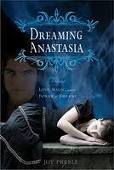
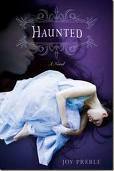
Now it's your chance to escape into adventure & romance based on Russian folklore. Leave a comment to win a copies of Dreaming Anastasia and Haunted.
Contest ends on Tuesday, April 19, 2011.
Published on April 12, 2011 04:00
April 7, 2011
So You Want To Grow Up And Be A Writer?
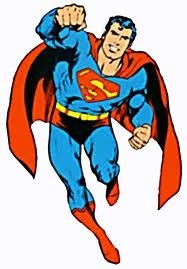 Last week I spoke at Two Rivers High School's Career Day, presenting with writer friend, Wendy Toliver, about being an author. When I was a teenager I thought writers needed to be as troubled as Hemingway, possess grammatical super powers, or have something... something I certainly didn't have.
Last week I spoke at Two Rivers High School's Career Day, presenting with writer friend, Wendy Toliver, about being an author. When I was a teenager I thought writers needed to be as troubled as Hemingway, possess grammatical super powers, or have something... something I certainly didn't have.I wish someone had given me a few tips about things I could do as a teenager to prepare for a career in writing. You don't need to learn to leap run-on sentences in a single bound, but doing these things will help your writing:
Practice. Allow yourself to experiment, learn, grow, and write some not-so-good stuff. Fill up pages and pages with your practice writing. Try all kinds of writing!
Keep a diary or journal about your own life. You may think your life is boring, but it's not. Write about your observations of other people, your dreams, the sucky things that happen, the exciting things... Your diary will help you develop your unique writing voice. (And you might turn some things into stories later.)
3. Publish your writing. Work on the school paper or yearbook. Submit poems and stories to magazines. Enter contests. Create a blog. Review books.
4. Read, read, read. Reading will teach you how to craft your own stories—you'll naturally learn what elements make good writing.
5. Learn. Take writing classes, attend teen writing workshops. Don't worry if you're the star student, or not (I've never been the shining storytelling student *sigh*). Your own passion for writing is what matters in the end!
6. Believe in yourself & follow your dream. Writing is a learned craft—and you can do what it takes to be published!
Websites:
Teen Ink: http://www.teenink.com/Contests
Cicada Magazine: http://www.cicadamag.com/
Teen Book Blogger: http://www.booknerdblog.com
Teen Book Review site: http://www.teensreadtoo.com
Published on April 07, 2011 12:02
March 23, 2011
Contest Winner!
Published on March 23, 2011 10:14
March 17, 2011
Interview with Bobbie Pyron & A Book Giveaway!
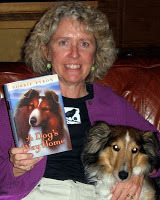 Today I'm so excited to introduce you to a wonderful new middle-grade novel, A Dog's Way Home by Bobbie Pyron. I love the way this story--alternating between the lost dog and his girl-- combines action and adventure with school and family issues. But I mostly loved the way my own 11-year-old daughter got lost in this story!
Today I'm so excited to introduce you to a wonderful new middle-grade novel, A Dog's Way Home by Bobbie Pyron. I love the way this story--alternating between the lost dog and his girl-- combines action and adventure with school and family issues. But I mostly loved the way my own 11-year-old daughter got lost in this story! Leave a comment to win a signed copy of A Dog's Way Home.
I'm impressed by the way you depict Tam's doggie thinking in A Dog's Way Home. You obviously know a lot about canine sensibilities. Will you tell us a little bit about your very first dog?
The very first dog we had when I was a child was a wonderful beagle named Puck. I come from a family of big-time dog lovers and dogs were always members of the family. They were not dogs that were stuck out in the back yard--they lived in the house with us. Puck was probably one of the smartest dogs I've ever known and had an "old soul." He was our nanny. We lived in a small beach town in Florida. Whenever my sister and I went out to roam the neighborhoods or the beach, my parents always said, "Take Puck with you and mind him." We didn't think there was anything odd about that! And because I was a rather shy child, I often preferred to spend my time with Puck than with other kids.
Tam is separated from his little girl Abby, but neither gives up finding each other again. I once found my missing cat after six months (I phoned the animal shelter on my birthday--and my cat was there!). Have you ever found a lost pet?
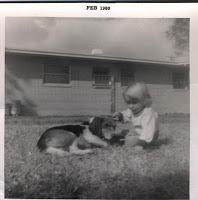 This is kind of a "lost pet" story: when I was about five, our neighborhood was hit by a small tornado. It came on so suddenly, we barely had time to come in from the back yard and hide in the bathroom! When the storm passed, my sister said, "Oh no, Pucky is in the back yard!" My mother and sister and I ran to the back yard. Not only was Puck gone, but so was his dog house. We walked all over the neighborhood calling and calling his name. My mother even called my father at work and told him he had to come home and help find Puck. Right after my dad got home, we got a phone call from some folks several blocks away. The man said, "We got at dog house in our front yard and a dog in it that belongs to you"! Just like Dorothy in The Wizard of Oz, Puck and his dog house had been picked up here, and dropped down over there. He never got in that dog house again.
This is kind of a "lost pet" story: when I was about five, our neighborhood was hit by a small tornado. It came on so suddenly, we barely had time to come in from the back yard and hide in the bathroom! When the storm passed, my sister said, "Oh no, Pucky is in the back yard!" My mother and sister and I ran to the back yard. Not only was Puck gone, but so was his dog house. We walked all over the neighborhood calling and calling his name. My mother even called my father at work and told him he had to come home and help find Puck. Right after my dad got home, we got a phone call from some folks several blocks away. The man said, "We got at dog house in our front yard and a dog in it that belongs to you"! Just like Dorothy in The Wizard of Oz, Puck and his dog house had been picked up here, and dropped down over there. He never got in that dog house again.I've always liked standard poodles, but my daughters don't think I'm fashionable enough to own one (poodles apparently don't like sweatpants!) What three dog breeds best represent you and why?
Wow, three...that's hard! My husband will tell you without hesitation that I'm a Border Collie. I'm always trying to get him to do something! And I need a job to do—I'm not a nap taker or lollygagger. But I'd like to think I also have the loyalty of a Sheltie and the stubbornness of a terrier.
Tam encounters many wild animals on his journey. Have you ever had a wild encounter while hiking with your dogs?
Ha! Well, living up here in Park City, it's not at all unusual to have close encounters of the wild kind. And I do spend a lot of time—all year round—out on the trails with my three dogs. We've frequently encountered moose, coyotes, foxes, deer, rabbits, grouse, elk, and unfortunately, skunks. One of my dogs, Boo, is a coyote mix so she loves to hunt. When she was younger, she'd run up and antagonize a moose until it had enough and chased her. Of course, she'd run straight to mom and hide behind me! Another time, she met a very friendly fox. They played and played together out in a field for a good ten minutes. It was so amazing—and of course, I didn't have my camera with me.
I admire the way Abby sticks to her belief that Tam will return--long after everyone else gives up. Tell us about a time in which you've stuck up for your beliefs.
I am by nature a fairly reticent, peace-making kind of person. I don't like to "rock the boat." BUT, I will not back down when it comes to the importance of adopting pets and the rights of our animal friends, whether they be domestic or wild. I will also have to say, I also had to really stand up for my beliefs when I was trying to find an agent or publisher for my book, A Dog's Way Home. So many people (editors, agents, workshop critiquers) told me I "couldn't" and "shouldn't" write the book in two different points of view. But I knew in my gut and in my heart that that was the way the book had to be written. I stuck by my vision for the book until I finally found my wonderful agent who also believed in the way I had to tell the story. Eventually, she found my amazing editor, Molly O'Neill, who also believed in my vision (and may I point out, I originally met Molly at one of your SCBWI regional conferences the year before). What I learned from that is this: yes, you have to "pick your battles" but you also have to respect your instincts and your vision!
To find out more about Bobbie Pyron see her website: http://www.bobbiepyron.com Be sure to check out her blog too! You can see me with my big doggies featured in her Fido And Friend In Five series.
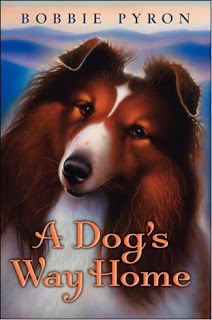
To win a copy of A Dog's Way Home , please tell me what kind of dog best represents you!Contest ends at midnight on March 23, 2011.Open to book and dog lovers worldwide!
Published on March 17, 2011 04:00
March 15, 2011
Overdoing Dialogue Quirks
 "Hey, girl," the new receptionist at the salon greeted me as I pulled my wallet out to pay for my haircut. "You look great, girl," she said as I handed her my credit card. "Can I help you with any product, girl?"
"Hey, girl," the new receptionist at the salon greeted me as I pulled my wallet out to pay for my haircut. "You look great, girl," she said as I handed her my credit card. "Can I help you with any product, girl?"I almost wanted her to call me "ma'am." I am old enough to be her mother--without having made poor choices in high school, or even college. And the term "girl" reminds me too much of all the terrible jobs I worked after being a college "woman" for four years.
One of the stylists walked behind the front desk and the receptionist immediately said, "What can I do for you, girl?" As I walked down the stairs, she called out, "See ya later, girl!"
That receptionist reminded me of a first draft character: too much of a good thing.
I often give my characters dialogue quirks to differentiate them from others in the story, to make them unique, to show personality, to create voice. Inevitably when I read through my rough draft, I realize that I've overdone those quirks. I find the snowboarder saying "dude" every time he speaks. "OMG!" exclaims the BFF on every single page. And then there's the word "like" -- Oh, I, like, use that word, like, all the time in my first draft dialogue.
Dialogue quirks are best used sparingly--a sprinkle here, a sprinkle there, as in ten pages later. I have to admit the first time the receptionist used the word "girl," I thought, Ooh. Interesting dialogue quirk, I'm going to write that down when I get to my car. But after the third mention, I only wanted to revise her speech like overdone first draft dialogue!
Published on March 15, 2011 15:17
March 10, 2011
Okay, now I miss Simon!
I love watching American Idol. I delight in watching the singers with promise juxtaposed with the delusional. I love watching underdogs overcome favorites. I hope to hear old songs sung new ways.
The process kind of reminds me of writing. Often you submit before you're ready, but you keep trying, you grow, and sometimes you make your dream come true.
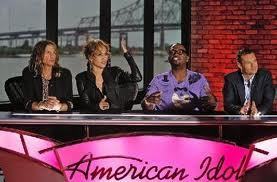
And I really like the new judges. Jennifer Lopez is kind and charming. Steven Tyler makes me smile. Who else but a bona fide rock star could wear a pink ruffled shirt with such aplomb? My whole family enjoys pooching out our lips and mimicking his little head-bob to the music. And Randy will always be my dawg.
But last night I found myself missing the industry/marketing perspective: Simon's critical voice.
Last night Jennifer Lopez told one mediocre crooner that she'd do better next time. No! She sounded like a housewife, um, singing along to her ringtone at the grocery store past midnight... (I miss Simon's analogies too.) As creative people, the judges want to encourage and nurture the contestants.
I get that.
That's why I usually advise newer writers to seek out critiques from authors, not editors and agents, at conferences. An author will give a beginning writer a bit of cheerleading--yes, you can--along with concrete writing advice. Industry professionals often look at conference submissions in terms of marketability.
That's what the top 13 on American Idol needs: criticism with marketability in mind. All of these contestants can sing, but not all of them have what it takes--right now--to sing radio hits.
Just like not all stories are ready to be books. My inner Simon: this manuscript should be lining the cage of a canary who sings like a pitchy American Idol wannabe...
I do miss Simon's honest and colorful critiques. I wonder what he'd look like wearing pink ruffles?
The process kind of reminds me of writing. Often you submit before you're ready, but you keep trying, you grow, and sometimes you make your dream come true.

And I really like the new judges. Jennifer Lopez is kind and charming. Steven Tyler makes me smile. Who else but a bona fide rock star could wear a pink ruffled shirt with such aplomb? My whole family enjoys pooching out our lips and mimicking his little head-bob to the music. And Randy will always be my dawg.
But last night I found myself missing the industry/marketing perspective: Simon's critical voice.
Last night Jennifer Lopez told one mediocre crooner that she'd do better next time. No! She sounded like a housewife, um, singing along to her ringtone at the grocery store past midnight... (I miss Simon's analogies too.) As creative people, the judges want to encourage and nurture the contestants.
I get that.
That's why I usually advise newer writers to seek out critiques from authors, not editors and agents, at conferences. An author will give a beginning writer a bit of cheerleading--yes, you can--along with concrete writing advice. Industry professionals often look at conference submissions in terms of marketability.
That's what the top 13 on American Idol needs: criticism with marketability in mind. All of these contestants can sing, but not all of them have what it takes--right now--to sing radio hits.
Just like not all stories are ready to be books. My inner Simon: this manuscript should be lining the cage of a canary who sings like a pitchy American Idol wannabe...
I do miss Simon's honest and colorful critiques. I wonder what he'd look like wearing pink ruffles?
Published on March 10, 2011 12:46
March 8, 2011
Synopsis or Root Canal?
 With SCBWI Work-In-Progress Grant applications due soon, my writing group has been preoccupied with synopsis writing. How to sum up 50,000+ words in fewer than 750? One member joked that she'd rather have a root canal than write her novel synopsis.
With SCBWI Work-In-Progress Grant applications due soon, my writing group has been preoccupied with synopsis writing. How to sum up 50,000+ words in fewer than 750? One member joked that she'd rather have a root canal than write her novel synopsis. Last year, I had a root canal. On my birthday. I'd rather write a synopsis. In fact, I usually begin the writing process by crafting a detailed synopsis. Things always change during the creative process of drafting a novel, but I like the security blanket my synopsis provides.
So I figured if I'm going to talk about *almost* enjoying synopsis writing, I better give you some hints to make the process less daunting:
The Basics:Write in present tense.Write in the 3rd person POV, even if your story is told in 1st person POV.Give away the ending.
To Begin:Think of your synopsis like a sales pitch—like a book jacket blurb. Keep it short, fast & exciting.Establish the hook right away (this can also be your 30 second elevator pitch, you know, to avoid those long-winded explanations: oh, and then this happens, but wait, I have to explain so-and-so, oh, and then there's this other character who, but let me back up and say... Snooze!).Introduce the main character and the main conflict.What's important about the main character? Include motivation, goals, conflict, but not physical description (unless vital to the plot).
The Middle:Highlight the plot points (scenes) that move the story forward. Give the reader a clear idea of what the book is about.Write your synopsis in chronological order. Do NOT make lists.Weave everything together like you're telling a story. Try to capture your main character's voice, even if you're writing in a different POV.Focus on the main character and the main plot. Touch on the subplots and minor characters. Do not include every character or every subplot. A short synopsis shows things that reflect on the MC's journey.Show increasing tension, increasing conflict.Think: action, reaction, decision.
The Ending:Tell the reader how the main plot resolves.Try to make the ending of your synopsis evoke the emotional response you hope a reader will feel upon finishing your story.
The Picky Stuff:Does your synopsis reflect the style, tone, and voice of your story? If it's funny, show humor in the synopsis. Writing something literary? Your synopsis should shine with gorgeous sentences.Does the reader know which characters to care about? What's at stake? How it will turn out?Have you woven together your character's external and internal journeys?Did you select the best plot points--the ones that affect your MC's emotional arc?Did you make every word count? Use strong adjectives and verbs (avoid adverbs).Did you select the most telling details to use? Don't weigh down your synopsis with extraneous or confusing details.Did you format your synopsis properly? Double-spaced, 12-point font, 1" margins.
Online resources:http://misssnark.blogspot.com check out the "crapometer" archiveshttp://blog.nathanbransford.com great writing advice straight from an agenthttp://kathycarmichael.com/articles-and-seminars good advice about synopsis writing
If you're still struggling to write an effective synopsis take a critical look at your story. Are you missing some key scenes? Does your main character lack internal motivation? Could you use an intriguing subplot to increase tension?
Really, it isn't that bad--you can still eat birthday cake after writing a synopsis. Not the case with root canals!
Published on March 08, 2011 13:31

